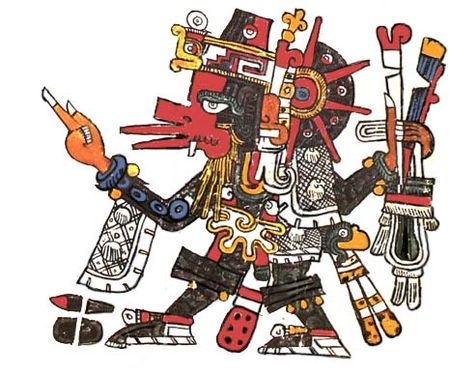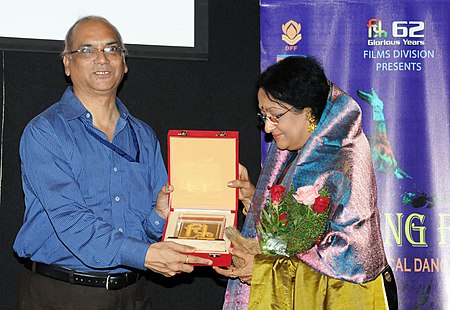Public charge rule
|
Read other articles:

Pangeran Karl I, yang mendirikan primogenitur Pangeran Johann I Joseph, yang mengesahkan keturunan patrilineal laki-laki yang layak menjadi penerus Pangeran Hans-Adam II, penguasa monarki saat ini Suksesi tahta Liechtenstein diatur oleh hukum wangsa Keluarga Kepangeranan Liechtenstein, yang memegang asas primogenitur agnatik. Pada 2004, kepala negara Hans-Adam II, yang secara terbuka menanggapi kritikan dari PBB yang menegur diskriminasi pengecualian perempuan dari garis suksesi, menyatakan bahw…

Possible Greco-Persian treaty (c. 449 BC) The Peace of Callias is a purported peace treaty that supposedly was established around 449 BC between the Delian League (led by Athens) and the Achaemenid Empire and ended the Greco-Persian Wars. The peace would then be the first compromise treaty between Achaemenid Persia and a Greek city. The peace was negotiated by Callias, an Athenian politician. Persia had continually lost territory to the Greeks after the end of Xerxes I's invasion in 479 BC. The …

Artikel ini berisi konten yang ditulis dengan gaya sebuah iklan. Bantulah memperbaiki artikel ini dengan menghapus konten yang dianggap sebagai spam dan pranala luar yang tidak sesuai, dan tambahkan konten ensiklopedis yang ditulis dari sudut pandang netral dan sesuai dengan kebijakan Wikipedia. (April 2019) Asian AgriJenisSwastaIndustriPerkebunan dan Pabrik kelapa sawitKantorpusatJl. Letjend MT Haryono No. A-1 Medan, IndonesiaProdukMinyak Sawit MentahKaryawanLebih dari 29.000Situs webasianagri.…

Untuk lagu Elvis Presley, lihat He Touched Me (album). Pangkuan Abraham, kapital Romanesque dari bekas Priori di Alspach, Alsace. (Museum Unterlinden, Colmar) Pangkuan Abraham (Inggris: Bosom of Abrahamcode: en is deprecated ) mengacu pada tempat penghiburan dalam Sheol Biblika (atau Hades dalam versi Septuaginta Yunani kitab suci Ibrani dari sekitar tahun 200 SM, sebagaimana dideskripsikan dalam Perjanjian Baru)[1] sebagai kediaman orang-orang yang dibenarkan ketika menantikan Hari Peng…

Cette page recense les différentes pièces héraldiques accompagnées d'une représentation visuelle où elles apparaissent de gueules sur champ d'argent. Sommaire : Haut – A B C D E F G H I J K L M N O P Q R S T U V W X Y Z A Adextré D'argent adextré de gueules. Adextré est normalement un attribut de position, quand une pièce secondaire est à la dextre d'une pièce principale. Mais ce terme s'emploie aussi pour un écu dont le tiers dextre est d'une couleur différente du champ. Ce…

Stasiun Uzen-Numazawa羽前沼沢駅Stasiun Uzen-Numazawa pada Agustus 2004LokasiNumazawa, Oguni-machi, Nishiokitama-gun, Yamagata-ken 999-1201JepangKoordinat38°1′43.01″N 139°52′20.87″E / 38.0286139°N 139.8724639°E / 38.0286139; 139.8724639Koordinat: 38°1′43.01″N 139°52′20.87″E / 38.0286139°N 139.8724639°E / 38.0286139; 139.8724639Operator JR EastJalur■ Jalur YonesakaLetak43.9 km dari YonezawaJumlah peron1 peron sampingInf…

Peta townland pulau Rathlin Townland (Irlandia: baile fearainncode: ga is deprecated ; Ulster-Scots: toonlann[1]) adalah unit administratif tradisional yang digunakan di Irlandia dan Kepulauan Barat di Skotlandia, biasanya mencakup wilayah seluas 100–500 acre (40–202 ha).[2] Sistem townland berasal dari Gaelik, sebelum invasi Norman,[3][4][5][6] dan sebagian besar memiliki nama yang berasal dari Irlandia.[4] Namun, beberapa nama dan bat…

Kevin JulioLahirKevin Julio Chandra28 Juli 1993 (umur 30)Jakarta, IndonesiaPekerjaanAktorpenyanyipresenterTahun aktif2007—sekarangKarier musikGenrePopInstrumenVokalTahun aktif2015—sekarangAnggotaYORE Kevin Julio Chandra (lahir 28 Juli 1993)[1] adalah seorang aktor, penyanyi dan presenter berkebangsaan Indonesia. Filmografi Film Tahun Judul Peran Catatan 2008 Basahhh... Alvin 2010 Menculik Miyabi Bimo 2012 Perahu Kertas 2 Pacar Wanda 2013 Bangun Lagi Dong Lupus Daniel Kembal…

Gambaran Ehecatl-Quetzalcoatl (Quetzalcoatl digabung dengan atribut Ehecatl),dari Codex Borgia Ehecatl (Spanyol: Ehécatl, bahasa Nahuatl: ehēcatl) adalah dewa pra-Kolumbus yang berhubungan dengan angin, yang muncul pada mitologi Aztek dan mitologi kebudayaan lainnya dari daerah Mesoamerika. Ia dikenal sebagai dewa angin.[1] Ehecatl juga berperan sebagai salah satu dewa pencipta dan pahlawan dalam kisah penciptaan kebudayaan Meksiko pada masa pra-Columbus.[2] Catatan kak…

2002 2012 Élections législatives de 2007 dans le Rhône 14 sièges de députés à l'Assemblée nationale 10 et 17 juin 2007 Corps électoral et résultats Inscrits au 1er tour 1 045 361 Votants au 1er tour 620 783 59,38 % 6,1 Votes exprimés au 1er tour 613 999 Inscrits au 2d tour 798 642 Votants au 2d tour 451 478 56,53 % Votes exprimés au 2d tour 440 613 Majorité présidentielle Liste Union pour un mouvement populaireNou…

تُعتبر حقوق الإنسان في أوكرانيا موضوعاً مثيراً للجدل، إذ صُنّفت في عام 2018 من قبل منظمات مثل منظمة فريدم هاوس على أنها «حرة جزئياً»،[1] بالرغم من أن وضع حقوق الإنسان كان قد تحسن بشكل كبير عقب ثورة أوروميدان في عام 2014 حسب مؤسسة فريدوم هاوس، إذ حصلت البلاد على تصنيف أفضل في م�…

Una Voce per Padre PioLogo attualmente in usoPaeseItalia Anno2000 – in produzione Generemusicale Edizioni24 (al 2023) Puntate24 (al 2023) Durata120 minuti Lingua originaleitaliano RealizzazioneConduttoreMara Venier (dal 2021) In Passato:Tiberio Timperi (2000, 2018)Pippo Baudo (2001)Massimo Giletti (2002-2015)Alessandro Greco (2016-2017)Flavio Insinna (2019-2020) IdeatoreEnzo Palumbo RegiaLella Artesi, Roberto Croce MusicheAlterisio Paoletti Rete televisivaRai 1 Modifica dati su Wikidata&#…

Indian classical Bharata Natyam dancer Padma SubrahmanyamBorn4 February 1943 (1943-02-04) (age 81)Madras presidency, British IndiaNationalityIndianAlma materEthiraj College for WomenOccupation(s)Dancer, Choreographer, Teacher and AuthorKnown forBharatanatyamParentKrishnaswami Subrahmanyam (father)RelativesS. Krishnaswamy (brother)Raghuram (nephew)Anirudh Ravichander (grand-nephew)Hrishikesh (grand-nephew)Gayathri Raghuram (grand-niece)AwardsPadma Shri (1981) Padma Bhushan (20…

Si ce bandeau n'est plus pertinent, retirez-le. Cliquez ici pour en savoir plus. Cet article ne cite pas suffisamment ses sources (novembre 2009). Si vous disposez d'ouvrages ou d'articles de référence ou si vous connaissez des sites web de qualité traitant du thème abordé ici, merci de compléter l'article en donnant les références utiles à sa vérifiabilité et en les liant à la section « Notes et références ». En pratique : Quelles sources sont attendues ? Com…

Questa voce sugli argomenti allenatori di calcio turchi e calciatori turchi è solo un abbozzo. Contribuisci a migliorarla secondo le convenzioni di Wikipedia. Segui i suggerimenti dei progetti di riferimento 1, 2. İrfan Buz Nazionalità Turchia Germania Calcio Ruolo Allenatore (ex centrocampista) Squadra Şanlıurfaspor Termine carriera 1998 - giocatore Carriera Giovanili 198?-1989 Rot-Weiß Lüdenscheid Squadre di club1 1989-1991 Sarıyer1 (0)1991-1992→ …

1927 film Sealed LipsDirected byGustaf MolanderWritten byPaul MerzbachProduced byOscar HembergStarringMona Mårtenson Fred Louis Lerch Sandra MilovanoffCinematographyJulius JaenzonProductioncompanyIsepaRelease date3 October 1927Running time91 minutesCountrySwedenLanguagesSilentSwedish intertitles Sealed Lips (Swedish: Förseglade läppar) is a 1927 Swedish silent drama film directed by Gustaf Molander and starring Mona Mårtenson, Fred Louis Lerch and Sandra Milovanoff.[1] It was shot at…

هذه المقالة عن شاشة البلازما. لمعانٍ أخرى، طالع بلازما. شاشة بلازما شاشة عرض البلازما (بالإنجليزية: PDP - Plasma Display Panel) يعود إلى العام 1964 في جامعة إلينوي الأمريكية، ولم تكن الفكرة أكثر من شاشة مكونة من نقطة ضوء.[1][2][3] تم منذ ذلك الوقت وحتى نهاية الستينيات العم�…

Charles Ferdinand, Pangeran Capua (atas), bersama istri morganatiknya, Anglo-Irlandia Penelope Smyth (kiri), dan putri mereka, Vittoria (kanan). Pernikahan morganatik[1] adalah sebuah pernikahan antara orang-orang dengan peringkat sosial yang tidak setara, yang mana dalam konteks bangsawan dimaksudkan untuk mencegah gelar dan hak istimewa suami (atau istri) diberikan kepada istri (atau suami) dan/atau anak-anak yang lahir dari pernikahan tersebut. Secara umum, ini adalah perkawinan antar…

追晉陸軍二級上將趙家驤將軍个人资料出生1910年 大清河南省衛輝府汲縣逝世1958年8月23日(1958歲—08—23)(47—48歲) † 中華民國福建省金門縣国籍 中華民國政党 中國國民黨获奖 青天白日勳章(追贈)军事背景效忠 中華民國服役 國民革命軍 中華民國陸軍服役时间1924年-1958年军衔 二級上將 (追晉)部队四十七師指挥東北剿匪總司令部參謀長陸軍總�…

Hannes HolmHannes Holm saat sebuah presentasi di Filmhuset dari film A Man Called Ove pada 2015.LahirHannes Martin Holm26 November 1962 (umur 61)Lidingö, SwediaPekerjaanSutradara, penulis naskahTahun aktif1983-sekarang Hannes Martin Holm (lahir 26 November 1962), adalah seorang sutradara dan penulis naskah asal Swedia.[1] Ia membuat hampir seluruh filmnya dengan Måns Herngren. Filmografi terpilih 1983 - Interrail 1983 - Vidöppet (Wide Open) (serial TV) 1985 - Förspelet (The…